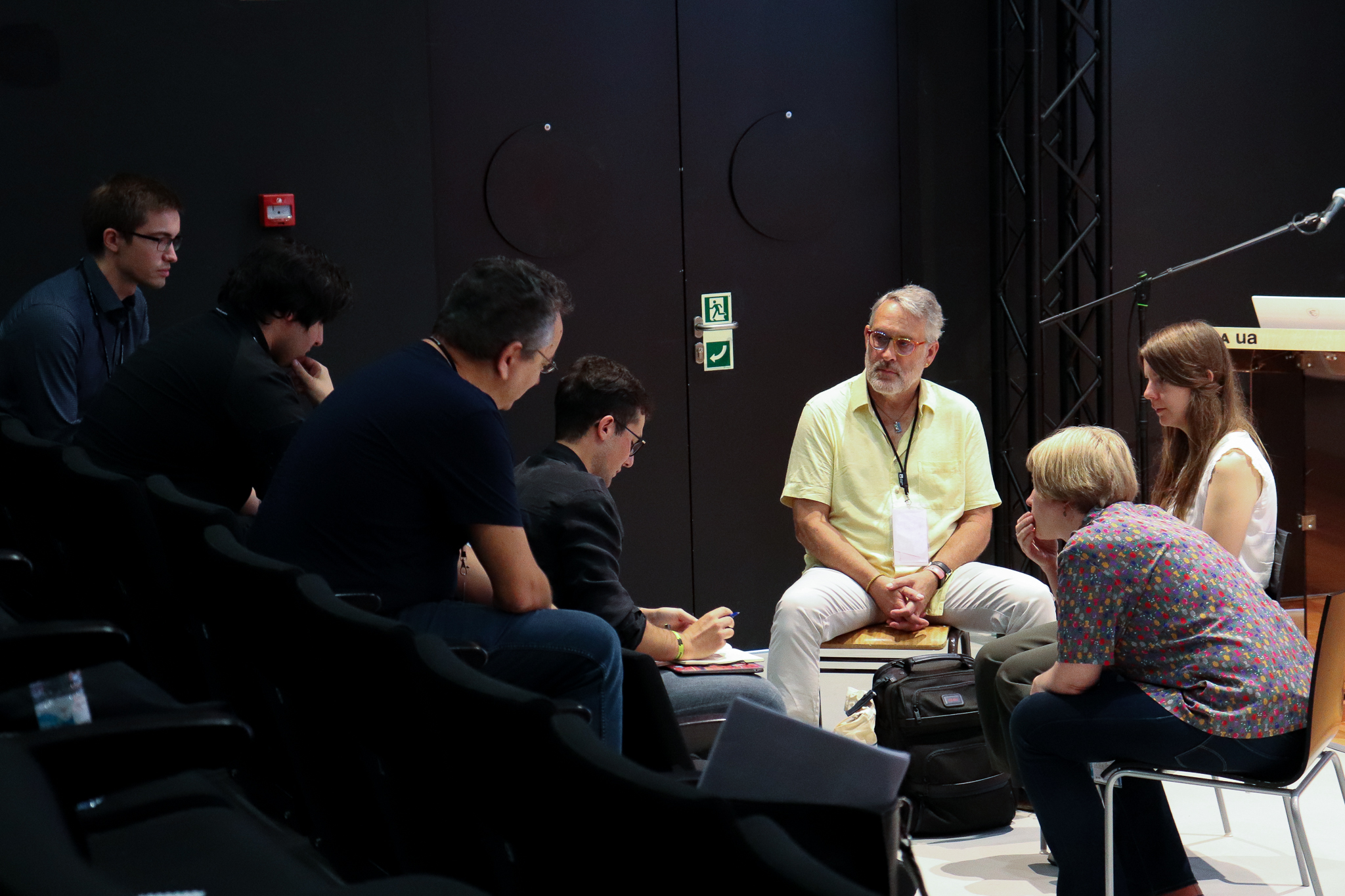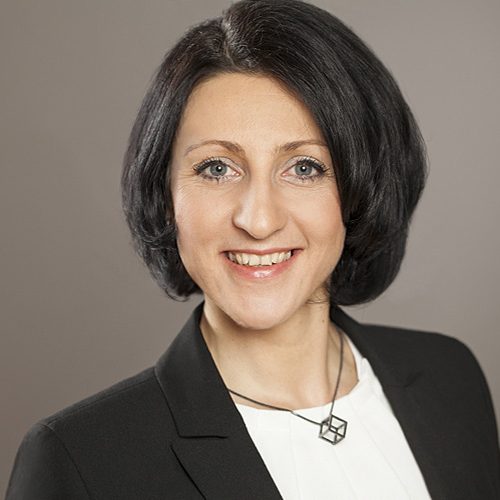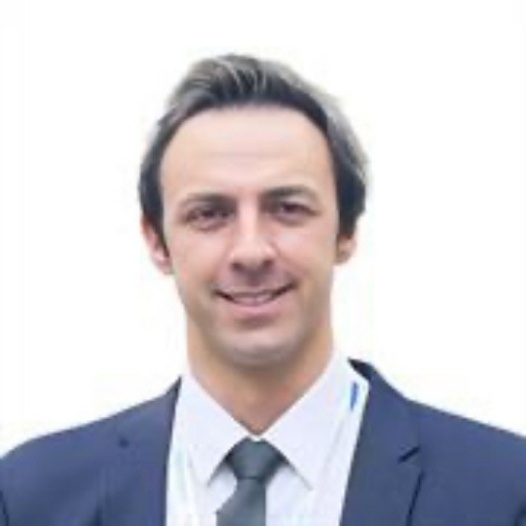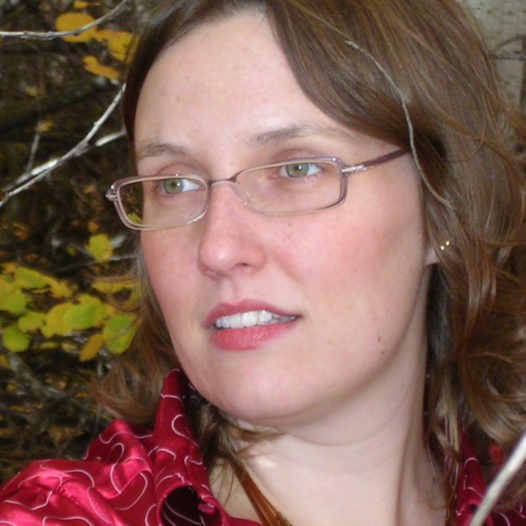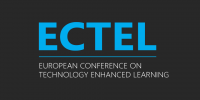
Twentieth European Conference on Technology Enhanced Learning
Two Decades of TEL: from Lessons Learnt to Challenges Ahead
Newcastle and Durham, UK, 15-19 September 2025
Doctoral Consortium
The EC-TEL Doctoral Consortium (DC) brings together PhD candidates working on topics related to Technology-Enhanced Learning with senior researchers in the field, providing them with an exceptional opportunity to present, discuss, and receive feedback on their research in an interdisciplinary and international atmosphere. Prominent professors and researchers in the field of Technology-Enhanced Learning will provide formative feedback to the selected papers through the review process and contribute actively to the planned format at the consortium.
Doctoral Consortium Format
The DC is a whole day event and will take place from 9 am to 7 pm. The DC will feature firehose presentations by the 8 selected doctoral students, followed by a single round-robin with the 8 selected mentors (senior members of the community). The mentoring format is a single round-robin within a micro-cohort (2 students: 2 mentors) which provides high 1:1 time, plus joint synthesis.
In the single round-robin, each student meets one-on-one with each of the 2 mentors in a single pass (no repeated rotations). Students ask targeted questions of each mentor (e.g., “Should I narrow or widen my primary research question?”, “Do you have any suggestions about my planned study/ies?”).
After the mentoring session, the mentees participate in a joint synthesis with both mentors and a peer student (panel round). For the panel the mentee sets the target and formulates an aim for feedback, e.g. “I need help narrowing my RQ and finding a measure for X.” Both mentors and a peer student provide advice and ideas from their perspectives. The goal is to provide intense learning opportunities for all PhD students, while also enabling career networking and confidential conversations that may not occur elsewhere.
Schedule
Session A 09:00 – 10.30 CEST
Introduction, Presentations & Mentoring
Chair: Ilona Buchem
Papers in session A:
Lena Borgards: The Role of Visualization Literacy in Learning Analytics: Exploring Its Impact on K-12 Teachers’ Dashboard Use for Instructional Decision-Making in the Classroom
Fareeda Almutairi: Comparing Linear and Personalised Gamification in VR-Based Learning: Effects on Motivation, Immersion, Cognitive Load, and Performance
Schedule of Session A
09:00–09:05: Welcome (5 min): Chair sets objectives, rules, timing.
09:05–09:09: Lightning intros (4 min): 1 min each: Student 1, Student 2, Mentor A, Mentor B.
09:09–09:19: Student 1 Talk (10 min): 7-min presentation + 3-min clarifying Q&A.
09:19–09:29: Student 2 Talk (10 min): 7-min presentation + 3-min clarifying Q&A.
09:29–09:39: 1:1 Round 1 (parallel) (10 min): S1 × M1, S2 × M2.
09:39–09:49: 1:1 Round 2 (swap, parallel) (10 min): S1 × M2, S2 × M1.
09:49–10:04: Panel for Student 1 (15 min): M1, M2, and S2 advise S1 (consolidate & next steps).
10:04–10:19: Panel for Student 2 (15 min): M1, M2, and S1 advise S2 (consolidate & next steps).
10:19–10:29: Wrap-up (10 min): 5 mins per student with key learnings + 2–3 concrete follow-ups.
10:29–10:30: Buffer (1 min).
Session B 11:00 – 12:30 CEST
Introduction, Presentations & Mentoring
Chair: Mutlu Cukurova
Papers in session B:
Somayeh Bayat Esfandani: Designing peer assessment tools to enhance the learning experience
C.Naomie Williams: Designing Next-Generation Adaptive Learning Solutions for K-12 Special Education
Schedule of Session B
11:00–11:05: Welcome (5 min): Chair sets objectives, rules, timing.
11:05–11:09: Lightning intros (4 min): 1 min each: Student 1, Student 2, Mentor A, Mentor B.
11:09–11:19: Student Talk #1 (10 min): 7-min presentation + 3-min clarifying Q&A.
11:19–11:29: Student Talk #2 (10 min): 7-min presentation + 3-min clarifying Q&A.
11:29–11:39: 1:1 Round 1 (parallel) (10 min): S1 × M1, S2 × M2.
11:39–11:49: 1:1 Round 2 (swap, parallel) (10 min): S1 × M2, S2 × M1.
11:49–12:04: Panel for Student 1 (15 min): M1, M2, and S2 advise Student 1 (consolidate & next steps).
12:04–12:19: Panel for Student 2 (15 min): M1, M2, and S1 advise Student 2 (consolidate & next steps).
12:19–12:29: Wrap-up (10 min): 5 mins per student with key learnings + 2–3 concrete follow-ups.
12:29–12:30: Buffer time (1 min).
Session C 13:30 – 15:00 CEST
Introduction, Presentations & Mentoring
Chair: Ilona Buchem
Papers in session C:
Shintaro Sato: Effective use of Feedback in Intelligent Learning Technology to Support Learners
Ebru Toka: Towards Evaluating Pedagogical Alignment in LLM-Generated Feedback
Schedule of Session C
13:30–13:35: Welcome (5 min): Chair sets objectives, rules, timing.
13:35–13:39: Lightning intros (4 min): 1 min each: Student 1, Student 2, Mentor A, Mentor B.
13:39–13:49: Student Talk #1 (10 min): 7-min presentation + 3-min clarifying Q&A.
13:49–13:59: Student Talk #2 (10 min): 7-min presentation + 3-min clarifying Q&A.
13:59–14:09: 1:1 Round 1 (parallel) (10 min): S1 × M1, S2 × M2.
14:09–14:19: 1:1 Round 2 (swap, parallel) (10 min): S1 × M2, S2 × M1.
14:19–14:34: Panel for Student 1 (15 min): M1, M2, and S2 advise Student 1 (consolidate & next steps).
14:34–14:49: Panel for Student 2 (15 min): M1, M2, and S1 advise Student 2 (consolidate & next steps).
14:49–14:59: Wrap-up (10 min): 5 mins per student with key learnings + 2–3 concrete follow-ups.
14:59–15:00: Buffer time (1 min).
Session D 15:30 – 17:00 CEST
Introduction, Presentations & Mentoring
Chair: Mutlu Cukurova
Papers in session C:
Annika Volt: Designing flexible instructional trajectories in technology-enhanced learning environment to promote students’ self-directed learning
Rakhi Leela Nair: Mathstronauts: Capturing Neural and Behavioural Data to Improve Inhibitory Control in Counterintuitive Maths Reasoning
Schedule of Session D
15:30–15:35: Welcome (5 min): Chair sets objectives, rules, timing.
15:35–15:39: Lightning intros (4 min): 1 min each — Student 1, Student 2, Mentor A, Mentor B.
15:39–15:49: Student Talk #1 (10 min): 7-min presentation + 3-min clarifying Q&A.
15:49–15:59: Student Talk #2 (10 min): 7-min presentation + 3-min clarifying Q&A.
15:59–16:09: 1:1 Round 1 (parallel) (10 min): S1 × M1, S2 × M2.
16:09–16:19: 1:1 Round 2 (swap, parallel) (10 min): S1 × M2, S2 × M1.
16:19–16:34: Panel for Student 1 (15 min): M1, M2, and S2 advise Student 1 (consolidate & next steps).
16:34–16:49: Panel for Student 2 (15 min): M1, M2, and S1 advise Student 2 (consolidate & next steps).
16:49–16:59: Wrap-up (10 min): 5 mins per student with key learnings + 2–3 concrete follow-ups.
16:59–17:00: Buffer time (1 min).
Who can apply
The intention of this doctoral consortium is to support and inspire PhD candidates during their ongoing research efforts. Therefore, we will consider applications from PhD students who:
- have started working on a PhD before the doctoral consortium.
- have neither achieved their PhD degree nor officially submitted their thesis before the doctoral consortium.
- are working on a topic within the Technology-Enhanced Learning domain.
- have good English reading and writing skills.
All being equal, candidates who are at earlier stages of their PhD will be prioritised.
Why apply to the DC?
By joining the DC, you will:
- Have a chance to share your current work-in-progress with a friendly but knowledgeable group of fellow researchers and professors.
- Receive feedback on your proposal by experienced anonymous reviewers.
- Practice communicating your research to a group of researchers in your area.
- Meet other PhD students who share interests with you.
- Have an opportunity to discuss PhD employability and strategies in a friendly environment.
- Publish your PhD proposal in the Doctoral Consortium proceedings.
- Meet and network with senior academics of the community.
Application process
1. Doctoral Consortium Paper
- Write about your PhD research!
- Use the supplied two-column CEUR template: either latex or doc.
- The length of the Doctoral Consortium paper is 5-10 pages.
- Make sure to adhere to the CEUR-WS Policy on AI assisting tools.
- Create a submission and upload the paper to EC-TEL EasyChair.
- (optional) All accepted Doctoral Consortium papers can present a poster about their PhD at the EC-TEL 2025 poster session.
- All DC papers should be authored only by the student themself. You can acknowledge your supervisor or collaborators at the end of the paper.
- Please remember to submit the support letter from your supervisor together with your paper!
2. Application Form
PhD candidates are requested to complete the EC-TEL Doctoral Candidate application form (time required: 5 minutes).
Doctoral Consortium paper
Elements to be addressed in the EC-TEL Doctoral Consortium paper:
- A clear formulation of the research question.
- An identification of the significant problems in the field of research within the TEL domain.
- An outline of the current knowledge of the problem domain, as well as the state of existing solutions.
- An outline of the applied or intended research methodology.
- A description of the PhD project’s potential contribution to solving the stated TEL problem.
- A discussion of how the proposed solution is different, new, or better as compared to existing approaches to the problem. How does your research advance knowledge in the field?
- A presentation of any preliminary ideas, the proposed approach, and the results achieved so far.
Review and publication
The accepted Doctoral Consortium papers will be published in CEUR Workshop proceedings: ceur-ws.org. The participants will have the opportunity to improve their papers in response to the reviews and based on the feedback they received during the Doctoral Consortium.
All submissions will be reviewed by at least two senior researchers.
Latest EC-TEL Doctoral Consortia Proceedings
2024 Proceedings of the Doctoral Consortium at the European Conference on Technology Enhanced Learning
2023 Proceedings of the Doctoral Consortium at the European Conference on Technology Enhanced Learning
2022 Proceedings of the Doctoral Consortium at the European Conference on Technology Enhanced Learning
2021 Proceedings of the Doctoral Consortium at the European Conference on Technology Enhanced Learning
Dates
- 10 April 2025 – PhD candidate application opens
- 16 June 2025 – 30 June 2025 – PhD candidate application deadline
- 21 July 2025 – Doctoral Consortium reviews
- 15 September 2025 – EC-TEL 2025 Doctoral Consortium
- 13 October 2025 – Camera-ready version of the improved submission
- November 2025 – Expected publication date
Doctoral Consortium Chairs
Ilona Buchem
Berlin University of Applied Sciences, Germany
As a Professor of Media and Communication at Beuth University of Applied Sciences Berlin, Faculty of Economics and Social Sciences, Dr. Ilona Buchem teaches courses in bachelor’s and master’s programs, both on campus and online, including Digital Business (BSc.) and Media Informatics (MSc.). As the head of the Communications Lab, Ilona Buchem leads a number […]
Mutlu Cukurova
University College London, UK
Mutlu Cukurova is Professor of Learning and Artificial Intelligence at University College London. Prof. Cukurova investigates the potential of AI to understand and support human learning with a particular interest in “learning how to learn” and solving complex problems collaboratively. His work emphasises human-AI complementarity, aiming to address the pressing socio-educational challenge of preparing people for […]

